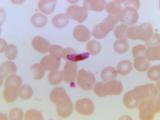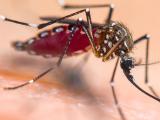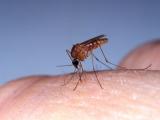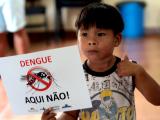Nov 13, 2012
Vaccine plan takes shape as Sudan's yellow fever outbreak grows
The World Health Organization (WHO) announced today that Sudan's yellow fever outbreak has grown to 329 suspected cases, 97 of them fatal, in 23 areas of its Darfur region. Central and South Darfur are reporting most of the infections, and lab tests have confirmed yellow fever in two samples, the agency said. The WHO's support of the country's health ministry and its partners includes boosting surveillance, conducting entomologic assessments, and standardizing clinical case management. The WHO said Sudan's government has asked for support for a mass yellow fever vaccine campaign, and the International Coordinating Group on Yellow Fever Vaccine Provision has approved 2.4 million doses, which should arrive in the country soon. The ultimate goal is to vaccinate about 3.6 million people, according to a report today from Middle East Online, a London-based news service. Details of the campaign were included in a joint report released yesterday by the WHO and Sudan's government, the story said. Sudan's last yellow fever outbreak occurred in South Kordofan state in 2005, resulting in 604 cases and 163 deaths.
Nov 13 WHO statement
Nov 13 Middle East Online story
UK publishes whole-genome sequence of novel coronavirus
The UK's Health Protection Agency (HPA) today published the complete genome sequence from the country's confirmed case of novel coronavirus infection, the agency said. The sequence will enable scientists to see how closely the UK case is related to the first case of infection with the novel coronavirus, in a Saudi Arabian patient in June, the HPA said in a news release. The UK case was diagnosed Sep 22, and the patient continues to receive care in a London hospital, the agency said. Professor Maria Zambon, director of HPA's reference microbiology services, said, "It has been very technically challenging to try to recover and piece together an entire virus from miniscule amounts of material. However, understanding more about the diversity of virus will help with efforts to determine its origin as well as to develop strategies for treatment and prevention." Saudi Arabia announced another case last week, bringing the global total to three.
Nov 13 HPA news release
Cambodia reports steep rise in dengue infections
Health officials in Cambodia have reported 39,290 dengue fever cases in the first 10 months of this year, amounting to a 163% rise from the number reported last year, Xinhua, China's state news agency, reported today. The country's National Center for Parasitology, Entomology, and Malaria Control (NCPEMC) also said the virus has killed 170 children, up 154% from the 67 deaths reported over the same period in 2011. Dr Char Meng Chuor, director of the NCPEMC, told Xinhua that the rise in deaths this year is related to parents seeking initial treatment for their sick kids at private clinics, which can sometimes lead to more severe infections if treatment is ineffective and follow-up treatment at public hospitals is delayed. Cambodia's dengue fever season typically occurs during the rainy season, which runs from May through October.
Nov 13 Xinhua story
Babesiosis spreading in the US Northeast
The tick-borne parasite that causes babesiosis is growing steadily more common in the northeastern United States and is now found in more than half of Connecticut communities, according to researchers quoted in a National Public Radio (NPR) report. Maria Diuk-Wasser, PhD, of the Yale School of Public Health said that over the past decade, annual cases in the state have increased from a handful to more than 100. She said babesiosis remains far rarer than Lyme disease, another tick-borne ailment, but she predicted that the gap will narrow as the parasite spreads and doctors learn to diagnose it. Babesiosis is caused by a parasite that infects red blood cells and may cause fever, chills, and anemia, though many infected people have no symptoms, according to the US Centers for Disease Control and Prevention. Most people catch the parasite from deer tick bites, but it can also be spread through donated blood. The disease is usually treatable with antibiotics, but it can be fatal for people with weakened immune systems. In July, the CDC reported that 1,124 babesiosis cases were identified nationwide in 2011.
Nov 12 NPR story
July 12 CIDRAP News item on nationwide cases
Story: DHS undersecretary opposes proposed BioWatch upgrade
A top adviser to Department of Homeland Security (DHS) Secretary Janet Napolitano has counseled her not to approve a $3.1-billion upgrade to the federal BioWatch program for detecting airborne pathogens, "scientists familiar with the matter" told the Los Angeles Times. Tara O'Toole, MD, MPH, the DHS undersecretary for science and technology, has expressed concerns about the reliability and cost of proposed Generation 3 technology to detect anthrax, smallpox, plague, and other pathogens in the event of a biological attack, anonymous sources told the Times. Napolitano has not indicated a position on the upgrade. The Times has published a series of articles critical of the BioWatch program, which led to congressional hearings in September and a response from Alexander Garza, MD, MPH, DHS's chief medical officer, who defended the program.
Nov 13 LA Times story
Sep 13 CIDRAP News story on congressional hearings



















